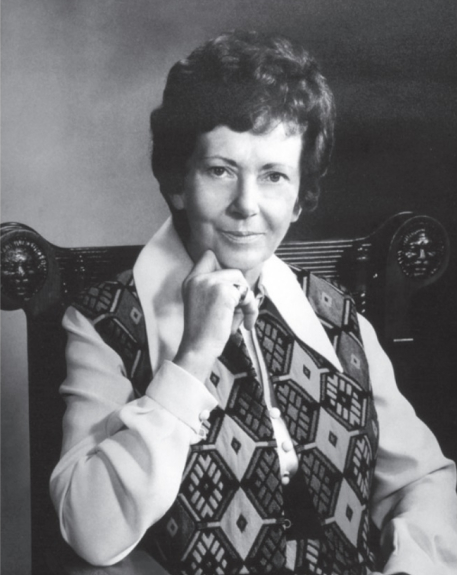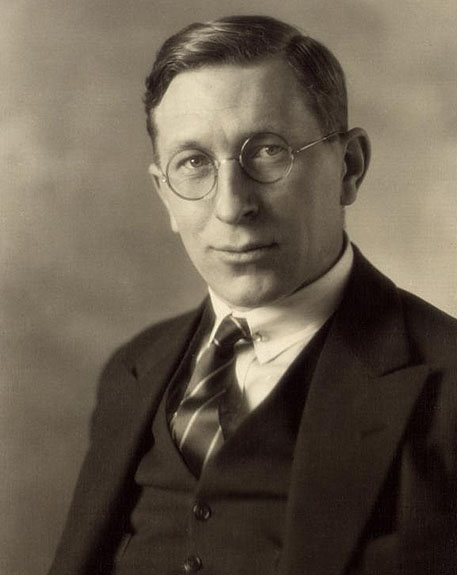2003 INDUCTEE Charles Huggins, MD Hormones, Cancer, Genitourinary Tract
September 22, 1901
(Halifax, Nova Scotia)
January 12, 1997
BA, Acadia University (1920)
MA, Harvard University (1924)
MD, Harvard University (1924)
1966: Nobel Prize in Medicine and Physiology
1966: Canada Gairdner International Award
See All AwardsAwards & Honours:
1966: Nobel Prize in Medicine and Physiology
1966: Canada Gairdner International Award
1963: Lasker Award
1958: Order “Our le Murite”, German Federal Republic
1949: Member of the National Academy of Science
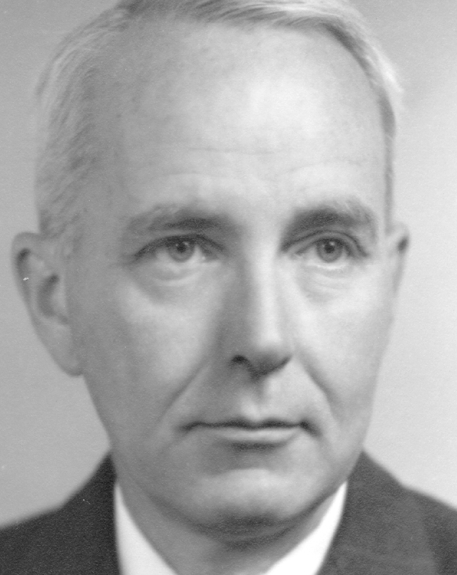
Discovered effective hormonal treatment for prostate and breast cancer
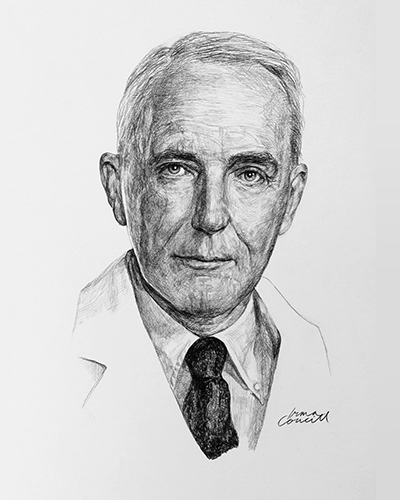
A pioneer in hormone research and cancer treatment
It was while practising surgery and teaching urology at the University of Chicago in the 1930s, that Dr. Huggins discovered that malignant prostate tumours were directly dependent upon the support of male hormones for their growth and proliferation. This knowledge led to the idea that the removal of these hormones and simultaneous treatment with female hormones would cause regression of such tumours. Further research confirmed the effectiveness of this procedure. Between 1959 and 1964, Dr. Huggins and his colleagues in Chicago extended their research to mammary tumours and their relationship to body estrogen levels. Dr. Huggins was a scientist’s scientist who passed his enthusiasm and delight in discovery onward to a whole new generation of medical researchers.
Key Facts
Developed a method to isolate the prostate glands of dogs
Was one of the original eight faculty members of the University of Chicago Medical School
Won over 100 awards and honorary degrees
Became the fourth Canadian to be awarded the Nobel Prize
Professional timeline
Impact on lives today
As of 2020, according to the Canadian Cancer Society, 64 Canadian men are diagnosed with prostate cancer every day and 75 Canadian women are diagnosed with breast cancer. Dr. Huggins’ ground-breaking work decades ago continues to offer hope to the thousands of people in Canada and around the world who must face these diseases. In expanding the way scientists understand the behaviour of cancer cells, Dr. Huggins laid the groundwork for advances in research and treatment, including the development of chemotherapy drugs which help to improve the quality of life of many cancer patients to this day.
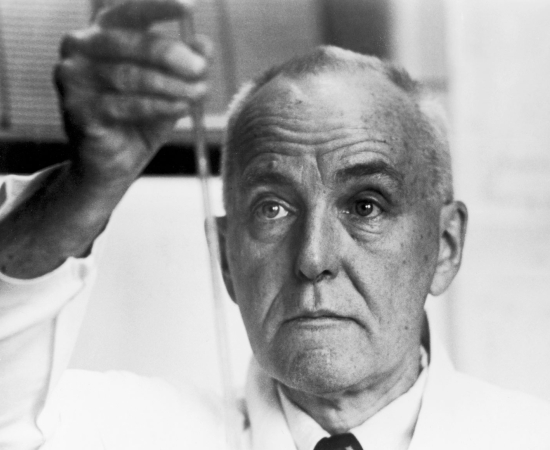
2003
-
Charles Huggins posthumously inducted into the Canadian Medical Hall of Fame
London, Ontario
-
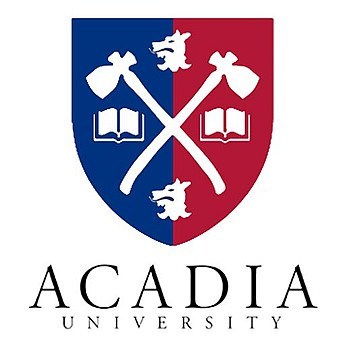
Dr. Huggins returned to his alma mater
Leadership in Organizational DevelopmentHe became Chancellor of Acadia University from 1972-1979.
-
Dr. Huggins continued to explore the impacts of interrupted cell signalling
Hormones, Cells, Genetics & Genomics, CancerBuilding on his past experience with prostate cancer, he discovered that breast cancer also relied on messaging from a specific hormone, estrogen. Dr. Huggins demonstrated that the removal of ovaries and adrenal glands led to a regression in tumor development.
-

The Ben May Laboratory for Cancer Research was founded at the University of Chicago
Cancer, Leadership in Organizational DevelopmentDr. Huggins served as its first director. Under his leadership, the Lab became a multidisciplinary centre for the advancement of experimental medicine and cancer research.
-
Dr. Charles Huggins made a seminal discovery
Hormones, CancerIn a now classic paper, Dr. Huggins demonstrated that the advance of prostate cancer could be arrested with estrogen injection. This step alone, however, was effective in only a small number of patients. In 1944, he performed the world’s first bilateral adrenalectomy. This procedure, which removed two adrenal glands, in addition to hormone therapy, proved to be an effective treatment.
-
Dr. Huggins began investigating prostate cancer
Genitourinary Tract, Cancer, HormonesUsing dogs, the only animal that is known to develop prostate cancer, Huggins developed a method to isolate prostate glands in order to measure glandular secretions.
-
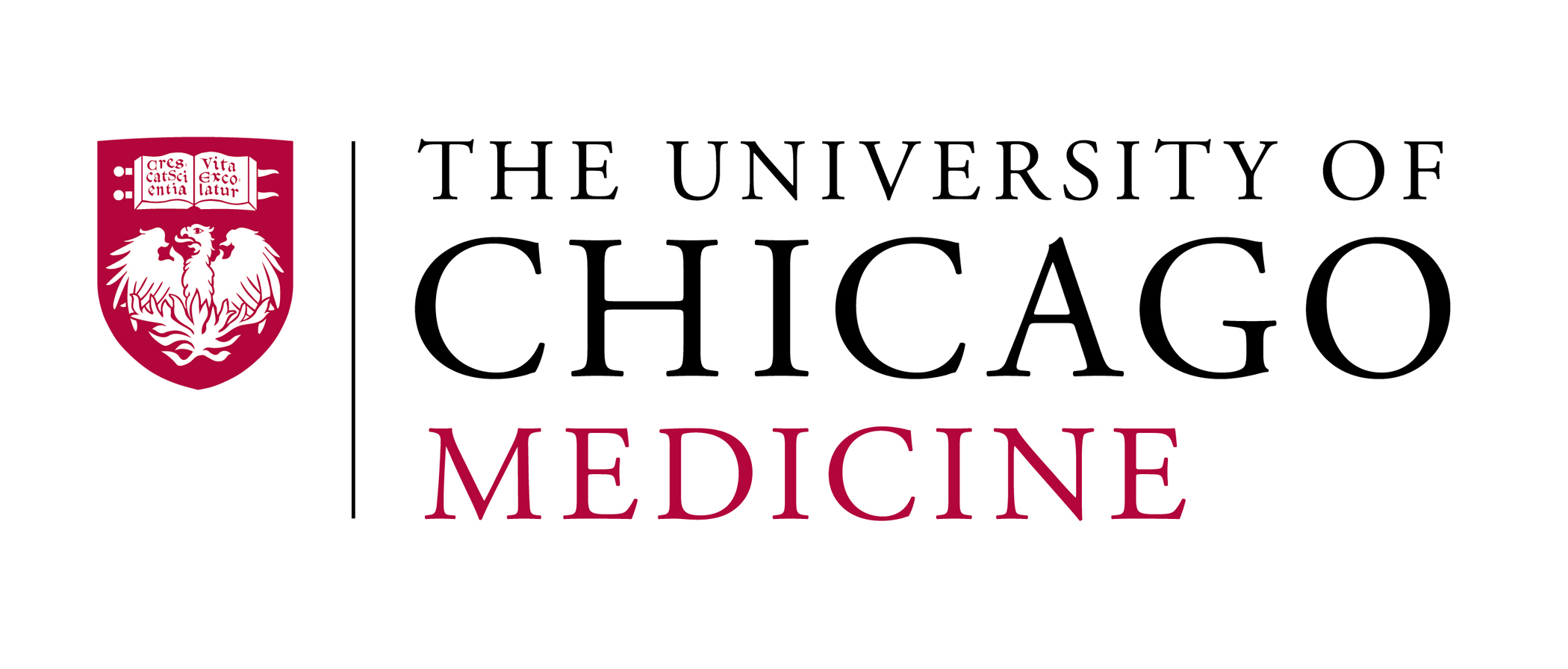
The University of Chicago opened its new medical school
Health and Medical Education & TrainingDr. Huggins joined the faculty as an instructor of surgery.
-

Dr. Huggins graduated from medicine at Harvard University
He then pursed further training in general surgery at the University of Michigan.
1924
Can I do more?

